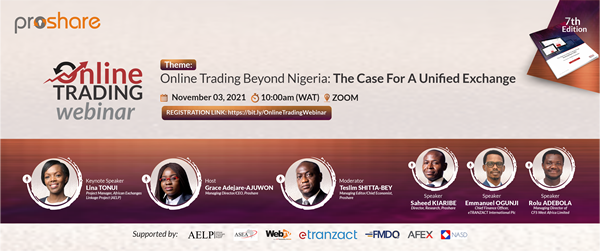Friday, October 15,2021 / 09:36 AM / Manpreet Gill / Header Image Credit: A Plce for Mom
A client recently asked us an interesting question about long-term investing - if one wishes to pass on an inheritance to the next generation, should it befully invested in equities alone?
At face value, there is a temptation to say yes. Equities, as is oftenrepeated, have historically outperformed other asset classes 'in the long term' and, so the argument goes, the inevitable volatility along the way should notmatter over such a long time-horizon. However, as we argue below, there are a fewthings that could go wrong with such an approach. While the appropriateallocation will always differ from one situation to another, in most cases asomewhat more diversified allocation could end up being a more prudent approach.
Preserving wealth for the next generation
There is no shortage of studies that show equities outperformedbonds and cash over long time-horizons in the post-World War II period. One ofthe most famous studies in this space - Jeremy Siegel's 'Stocks for the longrun' - uses considerable US market data to show that, over a sufficiently long period,equities have done a better job of delivering inflation-beating returns than(government) bonds, gold or cash.
While there has been much debate over whether investments made attoday's valuation points will deliver much lower returns than we are used tohistorically, the relative ranking between asset classes is still likely tohold. Our long-term (multi-year) expected returns, put together in partnershipwith Mercer Consulting in late 2020, show that global equities are expected todeliver mid-single-digit annualised returns. While this is lower than what weare used to historically, it is still higher than the less-than-1% annualisedreturns expected from global bonds and cash, and potentially negative returnsfrom gold.
Such a future would look very much like the past, albeit withsomewhat lower annualised returns across the board. Does that mean we shouldallocate to equities alone for the long run?
Will our nerves be as strong as financialhistory?
Possibly one of the biggest risks to such a strategy is that anall-equity strategy would make us more susceptible to making a behaviouralmistake. To provide just one example, the global equity index fell almost 60%from its October 2007 peak to its March 2009 trough.
Looking back at history, we now know that the correct action for abuy-and-hold investor with a multi-decade horizon would have been to donothing. However, amid the screaming headlines at the time, would we honestlyhave been able to avoid making the mistake of selling some, or all, of ourholdings in panic? In today's bull market, it is easy to say we would not. Nevertheless,there are countless anecdotes of investors who failed to hold their nerves atthat time: selling close to the market low and exacerbating the situation bynot reinvesting to take advantage of the subsequent equity market rebound.
Most diversified investment allocations would have fallen over thatperiod as well. However, a diversified allocation across equities, bonds, goldand cash would have fallen by much less than 60% and gains in asset classeslike bonds and gold would have offered opportunities to take profit and rebalanceinto equities as they fell. This would not only have reduced the chances ofmaking an investment error, but possibly even created a situation whererebalancing would have led one to add to equities at an opportune time.
Other pitfalls
Beyond making a behavioural mistake, we should also be wary of threerisks of focusing on equities alone.
First, many studies highlighting the historical outperformance ofequities over long horizons focus on equity indices. This means that, while theconclusions of the study would apply if implemented through mainstream equityindices, implementation via anything more specific - sectors or specificstocks, for example – would introduce additional layers of complexity thatcould lead to a very different outcome, including the risk of permanent loss.For example, of the 'Nifty 50' stocks popular in the 1970s in the US, many areno longer even publicly traded.
Second, most available research use US data, sometimes with adisproportionate focus on post-World War II history. It is plausible that theexperience outside the US may not be exactly the same. Other studies have alsoargued that pre-World War II data shows performance between equities and bondswas much more evenly matched. While much of this may seem like ancient history,when considering investment allocations targeted at multi-decade horizons, itis fair to question whether the next fifty years will indeed look like the lastfifty.
Third, a broad-sweep characterisation of equities and bonds can hidemany opportunities a level or two down from these large categories. Forexample, our long-term expected returns show that asset classes like Emerging Marketlocal currency bonds or listed infrastructure could offer long-term returnscompetitive with global equities, while offering diversification benefits.
Maximising one's chances of success
A lot can happen over a long time-horizon, and while history isoften a useful guide, it is far from guaranteed that future decades infinancial markets will look exactly like past ones. For investors, while alarge allocation to equities makes sense over such long time-horizons, webelieve a reasonable amount of diversification can help mitigate the journey'srisks and maximize the investment returns.
*Manpreet Gill is Head of FICC Strategy at StandardChartered's Wealth Management CIO office
Related News
1. How to GiveCheerfully and Still Achieve Financial Freedom
2. OvercomingChallenging Investment Realities in Uncertain Times
3. Making Moneyas a Short-Term Investor
4. Planning YourHappily Ever After - Savings and Investments For Couples
5. Short-Term VsLong Term Investing - The More Sure Path to Financial Freedom
6. How To MakeYour Financial Freedom Dreams Come Through In Half The Time
7. How to Buildan Investment Portfolio
8. Middle-ClassPoverty and How to Escape the Rich dad, Poor dad, Same Dad Syndrome
9. How toMaintain Your Current Quality of Life in Retirement
10. How to BoostYour Income above your Financial Goals
11. TheFundamentals of Factor Investing: An Application to Fixed Income
12. How toAchieve Financial Independence on Your Terms
13. How to AttainWealth and Transition from the Middle Class to the Upper Class
14. The IncomingWealth Shift - Coronation Merchant Bank
15. How To AvoidJeopardizing Your Financial Future with Lifestyle Inflation
16. Workers' Day:Ecobank Nigeria to Host Webinar on Survival Tips Amidst Rising Inflation
17. Five (5) KeyLessons from the M36 Webinar on Investing in Today's World
18. M36 andSankore Investment Host Joint Webinar on Investing in Today's World
19. How to Shiftyour livelihood from Active to Passive Income
20. Weddings:From the Dandy 1960s to the Snazzy 2020's-Understanding the New Normal
 Lagos, NG • GMT +1
Lagos, NG • GMT +1











 950 views
950 views









 Sponsored Ad
Sponsored Ad
 Advertise with Us
Advertise with Us









